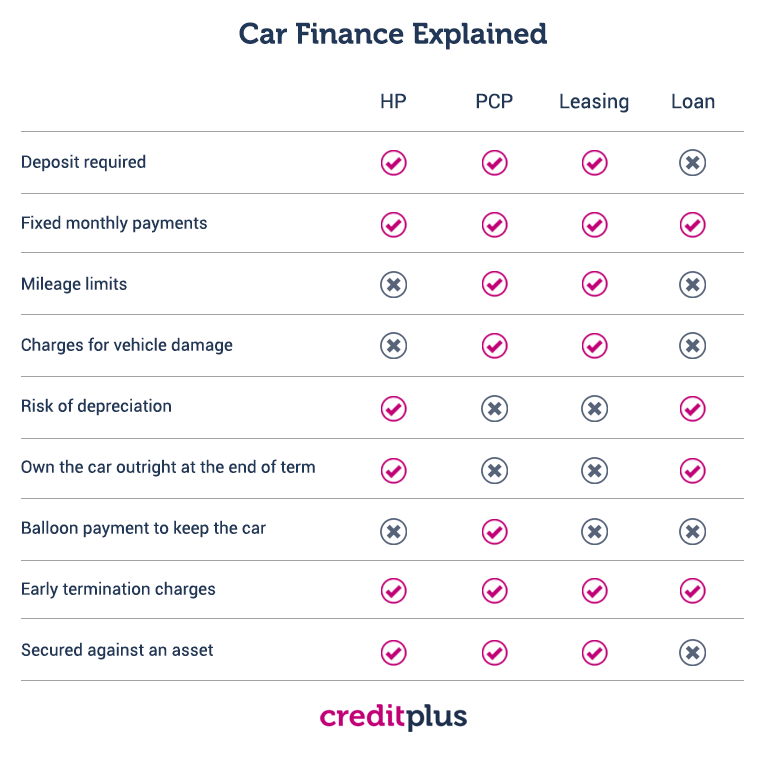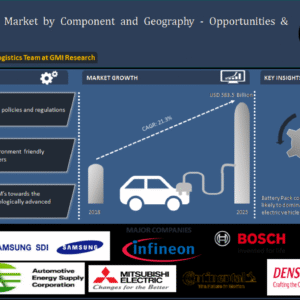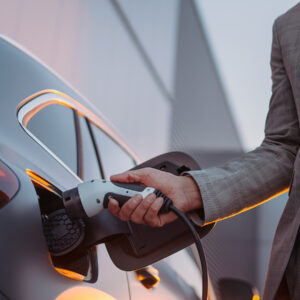Guide to Financing a Used Electric Car is your essential roadmap for navigating the world of electric vehicles, especially if you’re considering a pre-owned option. With the rising popularity of electric cars, understanding the unique advantages they offer compared to traditional vehicles is crucial. This guide will demystify financing options, research strategies, and the overall cost of ownership, empowering you to make informed decisions.
From exploring the benefits of electric cars to learning about available incentives and insurance considerations, we’re here to provide you with the insights needed to drive away confidently in your used electric car.
Understanding Electric Cars: Guide To Financing A Used Electric Car
As the automotive landscape shifts towards sustainability, understanding electric cars becomes essential for prospective buyers. Used electric cars, in particular, present unique opportunities and challenges that differ significantly from traditional gasoline vehicles. This section delves into these differences, the benefits of owning a used electric car, and addresses common misconceptions that may deter potential buyers.
Differences Between Used Electric Cars and Traditional Vehicles
Used electric cars (EVs) and traditional combustion engine vehicles operate on fundamentally different technologies. Electric cars are powered by battery systems that store energy, whereas traditional vehicles rely on internal combustion engines that burn fuel. This difference leads to various operational and environmental contrasts.
- Energy Source: Electric cars draw power from rechargeable batteries, resulting in zero emissions during operation, unlike traditional vehicles that emit CO2 and other pollutants.
- Maintenance: EVs generally have fewer moving parts, leading to lower maintenance costs. There are no oil changes, fuel filters, spark plugs, or exhaust systems to worry about.
- Driving Experience: Electric cars provide instant torque, delivering smoother acceleration without the gear-shifting interruptions typical in traditional cars.
- Range and Charging: While traditional vehicles can be refueled quickly at gas stations, EVs require longer charging times, though advancements in fast-charging technology are minimizing this gap.
Key Benefits of Owning a Used Electric Car
Investing in a used electric car comes with a range of benefits that can enhance both your driving experience and your financial well-being. These advantages make used EVs a smart choice for many consumers.
- Cost Savings: Used electric cars tend to be more affordable than new models, and owners benefit from lower fuel costs due to electricity being cheaper than gasoline.
- Tax Incentives: Depending on the region, buyers may qualify for government tax credits and incentives, even for used electric vehicles, which can significantly reduce the overall cost.
- Environmental Impact: By choosing a used electric car, owners contribute to reducing greenhouse gas emissions and dependence on fossil fuels, promoting a cleaner environment.
- Resale Value: The demand for electric cars is on the rise, meaning used electric vehicles can hold their value better than traditional cars as more consumers seek eco-friendly options.
Common Misconceptions About Electric Cars
Despite the growing popularity of electric vehicles, several misconceptions persist that can mislead potential buyers. Addressing these myths is crucial for making informed decisions.
- Charging Infrastructure: Many believe that charging stations are scarce; however, the network of public charging stations is expanding rapidly, making it easier to charge on the go.
- Battery Life: There’s a common notion that electric car batteries degrade quickly. In reality, modern EV batteries are designed to last for several years and many manufacturers offer warranties that cover battery performance.
- Performance: Some think electric cars lack power; however, many models offer impressive performance metrics that rival or exceed those of gasoline vehicles.
- Range Anxiety: The fear of running out of battery power is often exaggerated. Many newer models provide sufficient range for everyday driving needs, often exceeding 200 miles on a single charge, which is adequate for most commutes.
Financing Options for Used Electric Cars
When considering the purchase of a used electric car, understanding the financing options available is crucial. With the rising popularity of electric vehicles (EVs), various financing methods are tailored to meet the needs of potential buyers. This segment will explore these options, providing insights into how to secure funding for your electric vehicle purchase.When financing a used electric car, buyers typically have a few common methods at their disposal.
These include traditional bank loans, credit unions, dealership financing, and online lenders. Each option has its unique advantages and drawbacks, affecting factors such as interest rates, repayment terms, and overall cost.
Comparison of Bank Loans and Dealership Financing
Both bank loans and dealership financing are popular choices, but they operate differently. Understanding these differences can help buyers make informed decisions.Bank loans can offer competitive rates and the possibility of negotiating terms based on personal credit history. With a bank loan, the buyer secures the funds independently, allowing them to shop around for the best rates without pressure from a dealership.
However, this option may involve a more rigorous approval process, including credit checks and income verification.On the other hand, dealership financing is often more convenient, as it allows buyers to complete the purchase in one location. Dealerships frequently offer promotional financing rates, especially on certain models, which can be appealing. However, the interest rates can be higher compared to bank loans, and there’s less room for negotiation regarding terms.
Here’s a comparison table highlighting typical interest rates associated with various financing options for used electric cars:
| Financing Method | Typical Interest Rate Range |
|---|---|
| Bank Loan | 3% – 6% |
| Credit Union Loan | 2.5% – 5% |
| Dealership Financing | 4% – 8% |
| Online Lenders | 3.5% – 7% |
Each financing option has its merits and potential pitfalls. Buyers should carefully evaluate their financial situation, credit score, and the specifics of the vehicle they intend to purchase before making a decision. By understanding these options, buyers can better navigate the financing landscape for their used electric cars and secure the best deal possible.
Researching Used Electric Cars
When it comes to purchasing a used electric car, doing thorough research is crucial. With a range of models available in the market, along with varying features, understanding the best options can make a significant difference in your buying experience. This section will guide you through the process of researching used electric cars, ensuring you make an informed decision that aligns with your needs.Finding the best models for used electric cars requires a blend of online research, consumer reviews, and expert opinions.
Start by identifying the electric car models that have a strong reputation for reliability and performance. Websites like Edmunds, Kelley Blue Book, and Consumer Reports provide valuable insights into various electric vehicles and their long-term reliability. Additionally, joining forums and groups dedicated to electric vehicles can provide first-hand experiences from current owners, helping you gauge what works well and what to avoid.
Checking Reliability and History of Used Electric Cars
Verifying the reliability and history of a used electric car is key to ensuring you are making a sound investment. Here are some essential steps to take:
Vehicle History Report
Always obtain a vehicle history report from services like Carfax or AutoCheck. This report will show you important details such as previous accidents, title issues, and service history.
Battery Health Assessment
The battery is one of the most critical components of an electric vehicle. Request a battery health report from the seller, which should indicate the charging capacity and any potential need for future replacement.
Inspection by a Mechanic
Before finalizing your purchase, having the car inspected by a certified mechanic familiar with electric vehicles is wise. They can check for any electrical issues or hidden problems.
Recall Check
Research if the model has had any recalls and whether those issues have been addressed. This information can often be found on the National Highway Traffic Safety Administration (NHTSA) website.Understanding these factors not only safeguards your investment but also enhances your overall ownership experience.
Essential Features to Look for in a Used Electric Car
When searching for the right used electric car, it’s important to consider several essential features that can enhance safety, performance, and convenience. Below is a checklist of key aspects to evaluate:
Range
Look for a used electric car that offers a range suitable for your daily driving needs. Models with at least 100 miles of range are often more practical for most users.
Charging Options
Consider models that support various charging options, including home charging capabilities and the availability of fast-charging stations.
Technology and Infotainment
Features such as navigation, Bluetooth connectivity, and advanced driver-assistance systems can greatly improve your driving experience.
Warranty Options
Check if the vehicle still has a manufacturer’s warranty or if extended warranties are available. This can provide peace of mind regarding potential repairs.
Cargo Space
Evaluate the vehicle’s cargo capacity, especially if you plan to use it for family trips or transporting goods.Being aware of these features will help you narrow down your choices and find a used electric car that meets your lifestyle and budget.
Assessing Total Cost of Ownership
Understanding the total cost of ownership (TCO) for a used electric car goes beyond just the purchase price. It encompasses various factors such as insurance, depreciation, maintenance, and charging costs. By analyzing these elements, potential buyers can make informed decisions that reflect both immediate financial commitments and long-term savings.Several factors contribute to the total cost of ownership for a used electric car.
These include initial purchase price, insurance rates, maintenance expenses, charging infrastructure, and potential tax incentives. Unlike gasoline vehicles, electric cars typically have lower maintenance costs due to fewer moving parts and no oil changes. Additionally, electricity tends to be cheaper than gasoline, leading to significant savings over time.
Cost Comparison of Used Electric Cars
When assessing the total cost of ownership, it is essential to compare different used electric car models. Below is a table that Artikels several popular used electric car models along with their estimated annual costs, including fuel, maintenance, and insurance. This comparison provides a clearer picture of what to expect financially when choosing a used electric car.
| Model | Purchase Price ($) | Annual Fuel Cost ($) | Annual Maintenance Cost ($) | Annual Insurance Cost ($) | Total Annual Cost ($) |
|---|---|---|---|---|---|
| Nissan Leaf | 15,000 | 500 | 300 | 1,000 | 1,800 |
| Tesla Model 3 | 30,000 | 400 | 350 | 1,200 | 1,950 |
| Chevrolet Bolt | 20,000 | 450 | 300 | 1,100 | 1,850 |
| Hyundai Kona Electric | 27,000 | 480 | 320 | 1,150 | 1,950 |
The estimates provided in the table reflect typical costs associated with these models and can vary based on individual circumstances. The potential savings on fuel and maintenance compared to gasoline cars can be substantial. For instance, while gasoline vehicles often require regular oil changes and more frequent brake replacements, electric cars generally have lower upkeep, making them a more cost-effective choice over time.
“The total cost of ownership offers a more comprehensive understanding of vehicle expenses beyond just initial purchase price.”
Investing in a used electric car not only helps in saving money but also promotes eco-friendliness, creating a win-win scenario for both the owner and the environment.
Evaluating Trade-In and Resale Value
When purchasing a used electric car, understanding the trade-in value of your current vehicle is crucial. Not only does it help you gauge how much you can put towards your new purchase, but it also aids in making informed financial decisions. Evaluating trade-in values properly can lead to better negotiations and, ultimately, more savings. To assess the trade-in value of your existing vehicle, consider the following factors: its age, mileage, overall condition, and current market trends.
These components play a significant role in determining how much a dealership or private buyer will offer. Additionally, utilizing online resources such as Kelley Blue Book or Edmunds can provide a reliable estimate based on your vehicle’s specifics.
Factors Influencing Resale Value
Understanding the elements that affect the resale value of used electric cars can help you make smarter choices. Various factors contribute to how much a used electric car will be worth when it comes time to sell or trade it in.
- Brand Reputation: Some manufacturers have a stronger reputation for reliability and longevity, which can enhance resale value. Brands like Tesla and Nissan are often recognized for their durability and performance.
- Mileage: Lower mileage typically increases resale value. Electric cars generally have less wear and tear, which is beneficial for resale.
- Condition: The physical and mechanical condition, including battery health, impacts how much buyers are willing to pay. Regular maintenance records can boost perceived value.
- Battery Life: Battery degradation is a crucial concern for electric cars. A vehicle with a healthier battery can command a higher price.
- Market Demand: Popularity and demand for electric vehicles in your area can significantly influence resale values. Regions with incentives for electric car ownership often see higher demand.
Maximizing Resale Value of a Used Electric Car
Taking proactive steps to enhance the resale value of your used electric car can ensure you get the best return on your investment. Here are some practical strategies:To maximize the resale value, consider maintaining comprehensive service records and ensuring that the vehicle is in excellent condition prior to sale. Keeping the interior and exterior clean, and addressing any minor repairs can also create a good impression.
- Regular Maintenance: Adhering to a maintenance schedule and keeping records can demonstrate reliability to potential buyers.
- Battery Care: Monitoring battery health and opting for genuine parts during repairs can maintain efficiency and value.
- Upgrades: Consider adding features that are in demand, like advanced safety tech or updated infotainment systems.
- Documentation: Providing a detailed history of the car’s maintenance, battery health, and any upgrades can instill confidence in buyers.
- Timing the Sale: Selling when demand is high—for example, during tax refund seasons or before new models are released—can yield better offers.
Proper evaluation and care can significantly enhance both trade-in and resale values, allowing for a smoother transition to your next electric vehicle.
Incentives and Rebates

Purchasing a used electric car can be an exciting step toward reducing your carbon footprint, and the financial incentives available can make the transition even more appealing. Various state and federal programs are designed to encourage the adoption of electric vehicles (EVs), particularly for used models, which can significantly ease the financial burden of ownership.Many states and the federal government offer a range of incentives to promote the purchase of used electric cars.
These incentives can include tax credits, rebates, and grants, which help decrease the overall cost of the vehicle. Understanding what’s available in your area can maximize your savings. Below is a list of some common incentives for purchasing used electric cars:
Common Incentives
The following are some notable incentives that potential buyers should consider:
- Federal Tax Credit: Up to $7,500 for new electric vehicles, with varying amounts available for used vehicles based on battery capacity and purchase year.
- State Tax Credits: Many states offer additional tax credits, which can vary by state. For example, California offers a Clean Vehicle Rebate Project, providing rebates for both new and used EVs.
- Utility Company Rebates: Some utility companies provide rebates or reduced electricity rates for charging electric vehicles, which can offset electricity costs.
- Local Incentives: Cities may have their own incentive programs, including grants or vouchers for used electric cars, so it’s worth checking local resources.
Applying for these incentives typically involves filling out specific forms and providing documentation related to your vehicle purchase. Eligibility requirements often include being a resident of the state offering the incentive, ensuring the vehicle meets certain age and battery capacity criteria, and sometimes completing an application within a specified timeframe after the purchase.
“Utilizing available financial incentives can significantly reduce the overall cost of purchasing a used electric car, making it a financially savvy choice.”
Understanding the specific requirements and application processes will ensure you capitalize on the financial benefits these incentives provide, ultimately making your used electric car purchase even more affordable.
Insurance Considerations
When it comes to insuring used electric cars, there are specific factors that set these vehicles apart from their gasoline counterparts. As electric vehicles (EVs) continue to gain popularity, understanding the insurance implications is essential for responsible car ownership. This section Artikels the unique insurance needs for used electric cars, provides tips for securing the best insurance rates, and details how electric vehicle components can influence your premiums.
Unique Insurance Needs for Used Electric Cars
Electric cars often come with specialized parts and technology that can impact your insurance coverage. Unlike traditional vehicles, electric cars may require coverage that specifically addresses the replacement and repair of high-voltage batteries and electric drive systems. Understanding these factors is crucial for choosing the right policy.For instance, the cost of replacing an electric vehicle battery can range from $3,000 to $7,000, which can significantly affect your comprehensive and collision coverage.
It’s important for owners to ensure their policy adequately covers these components, particularly if the vehicle is older or has a history of battery-related issues.
Finding the Best Insurance Rates for Electric Vehicles, Guide to Financing a Used Electric Car
Locating affordable insurance for electric cars can be challenging, but there are strategies that can help you secure better rates. Here are some effective tips to consider:
Shop Around
Obtain quotes from multiple insurance providers. Each company has different underwriting criteria for electric vehicles, which can lead to varying premium rates.
Consider Discounts
Look for insurers that offer discounts for electric car ownership, safe driving records, or bundling policies (like home and auto insurance).
Assess Usage
Your driving habits can impact your rates. If you primarily use your vehicle for commuting rather than long-distance travel, let your insurer know, as this might lower your premium.
Utilize Online Tools
Use online comparison tools to evaluate rates across different insurers quickly. These platforms can simplify the process and help you find competitive pricing.
Impact of Electric Vehicle Components on Insurance Premiums
The specialized components of electric vehicles can have a notable impact on insurance premiums. Understanding these factors can help you anticipate costs.
Battery Replacement Cost
As highlighted, electric car batteries are among the most expensive components. The potential for high repair costs can lead to increased insurance premiums.
Advanced Technology and Features
Electric vehicles often come equipped with advanced safety features and technology, such as regenerative braking and adaptive cruise control. While these features may reduce the likelihood of an accident and lower premiums, their repair costs can also be higher when an accident does occur.
Repair Availability
Not all auto repair shops are equipped to work on electric vehicles, which can drive up repair costs. This scarcity can also lead to higher insurance premiums, as insurers factor in potential repair expenses.
Resale Value Considerations
As electric vehicles age, their resale value can fluctuate significantly. Insurance companies may consider this depreciation when calculating premiums.Overall, being well-informed about the insurance considerations for used electric cars can empower owners to make better decisions and save money in the long run. By understanding the unique needs, exploring various options, and considering how components affect premiums, electric car owners can navigate the insurance landscape effectively.
Preparing for Purchase
Before committing to the purchase of a used electric car, it’s crucial to take several preparatory steps. This phase ensures that you are not only making a financially sound decision but also choosing a vehicle that meets your needs and expectations. From understanding financing options to performing inspections, this guide walks you through a systematic approach that will help streamline your buying process.A well-organized timeline can make the purchasing process more efficient and less stressful.
It’s important to allocate time for financing arrangements, vehicle inspections, and final negotiations. Here’s a suggested timeline to follow:
Timeline for the Purchasing Process
Creating a timeline helps in managing each step effectively. The following schedule Artikels key activities to complete before finalizing your purchase:
- Week 1: Research financing options and get pre-approved for a loan.
- Week 2: Identify potential used electric cars and arrange for test drives.
- Week 3: Have a trusted mechanic inspect the car of choice.
- Week 4: Review trade-in values and finalize financing terms.
- Week 5: Negotiate and close the deal.
It’s essential to prepare a comprehensive list of questions to ask the seller, ensuring that you gather all pertinent information before making a commitment. This not only helps establish trust but also allows you to make an informed decision.
Questions to Ask the Seller
Engaging with the seller directly can reveal valuable insights about the vehicle’s history and condition. Consider the following questions:
- What is the vehicle’s maintenance history?
- Have there been any accidents or damages?
- Can you provide the battery health report?
- What is the current mileage of the vehicle?
- Are there any existing warranties or service agreements?
- What charging equipment comes with the vehicle?
In preparation for your purchase, ensure that you also understand the significance of each question. This will empower you to negotiate more effectively and ensure that you are not caught off guard by any potential issues after the purchase is made. Always remember that taking your time and being thorough in your preparations will lead to a more satisfying ownership experience with your used electric car.



